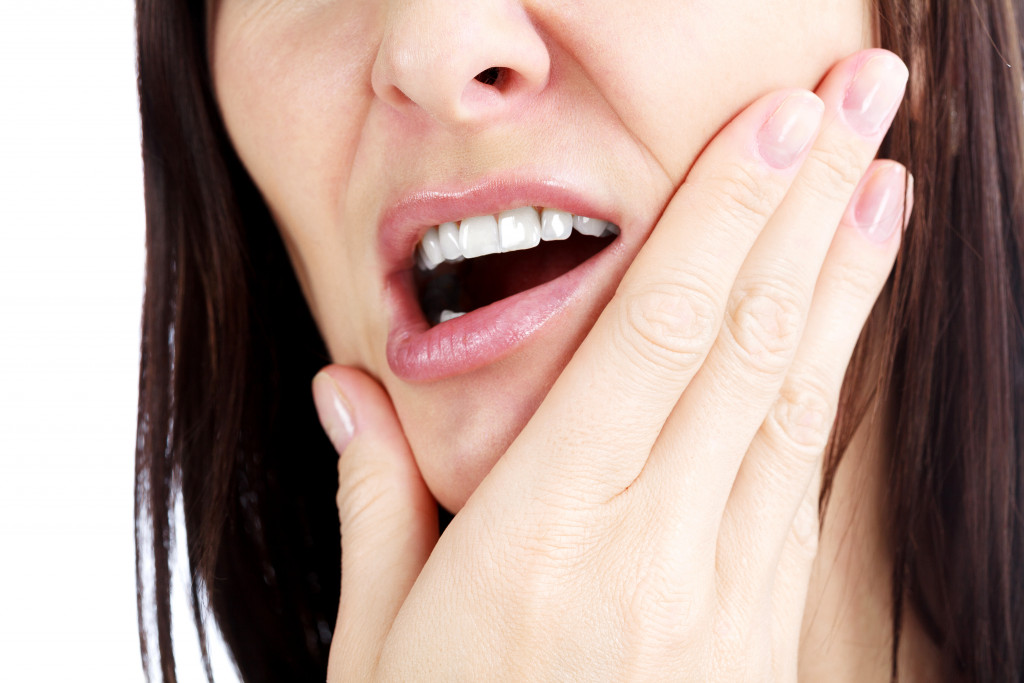- Consult with your dentist about treatments to replace missing teeth and preserve jawbone health.
- Practice good oral hygiene habits such as eating a balanced diet and avoiding smoking and excessive alcohol consumption.
- Take preventive measures against gum disease through brushing, flossing, using mouthwash, and regular visits to the dentist.
- Wear a mouthguard when playing contact sports or if you experience grinding teeth during sleep.
A healthy jawbone is essential for speaking, eating, and maintaining oral health. Unfortunately, many factors can lead to jawbone deterioration, such as periodontal disease, tooth loss, and even trauma. Fortunately, there are steps that you can take to help preserve the health of your jawbone.
You can promote strong and healthy jawbones by making certain lifestyle changes, engaging in good oral hygiene habits, and visiting your dentist regularly for checkups and cleanings. With the right care plan, you can ensure your smile stays beautiful for years!
Consult with your dentist.

Consulting your dentist about dental implant treatments if you experience jawbone loss due to tooth loss is a critical step in preserving your jawbone health. Implants offer a viable and permanent solution to replace missing teeth, reducing the chances of further bone loss.
By consulting with your dentist, you can learn more about the risks and benefits of this type of treatment, ensuring you find the best tailor-made solution for your needs. Additionally, periodic checkups are essential for monitoring any side effects or issues arising during the treatment and allowing for timely corrections.
Practice good oral hygiene habits.
Here are some tips on how to improve your oral hygiene habits:
Eat a balanced diet.

Eating a balanced diet is one of the best ways to care for your jawbone health. The essential minerals in fruits, vegetables, whole grains, dairy products, and lean proteins promote healthy and strong jawbone density. For optimum jawbone health, avoiding processed foods and those high in sugar is important, as these can weaken tooth enamel and promote gum disease.
Keeping these foods out of your diet preserves jawbone health and contributes to better oral hygiene practices, which help keep our teeth in top condition for longer. A deficiency of important vitamins and minerals has been linked to osteoporosis-related bone loss in the jaws. A balanced diet is key for maintaining an optimal level of bone tissue that will prevent jawbone degradation over time.
Avoid smoking and excessive alcohol consumption.
Preserving jawbone health is of utmost importance in the pursuit of longevity. To reduce potential degradation, it is critical to avoid smoking and excessive alcohol consumption. Smoking has long been known to pose various health concerns, with long-term smokers prone to heightened risks of oral cancer, receding gum lines, and increased inflammation throughout the mouth.
Excessive alcohol consumption, on the other hand, has been linked to inflamed gums that can severely damage your jawbone if not properly taken care of through regular cleanings at the dentist’s office.
Take preventive measures against gum disease.
Taking preventive measures against gum disease is essential to preserving jawbone health. Regular brushing and flossing, especially after meals, helps remove plaque and bacteria that are responsible for initiating the gum infection. It would be wise to regularly visit a dentist or dental hygienist to get an expert opinion and undergo a professional gum check-up.
This will help you identify any risk of gum disruption before it progresses, allowing you to take preventative action. Mouthwashes are also useful in killing bacteria that contribute to periodontal infections.
Visit your dentist regularly for checkups and cleanings.
It is critical to visit your dentist regularly for checkups and cleanings to preserve the health of your jawbone. Without regular visits, plaque and tartar might build up around the base of teeth and infect the gums. If left undetected, these infections can easily spread to deeper layers of the jawbone, resulting in gum disease that causes deterioration of the bone.
It is very important for people who have experienced bone loss due to periodontal disease or an accident to visit their dentist regularly. With proper diagnosis and timely interventions from a dental professional, any damage can be managed effectively before further complications develop.
Wear a mouthguard.
Wearing a mouthguard while playing contact sports or nighttime grinding is crucial to preserving jawbone health. Not only can it help prevent dental injuries, but it can also protect against fractures caused by excessive chomping on the bones of the lower jaw area. Proper use of a mouthguard can significantly reduce the chances of suffering from sports-related injuries and teeth-grinding-related damages.
Athletes and individuals with temporomandibular joint (TMJ) disorders need to wear a proper fit and comfortable mouth guard; this reduces the risk of any potential damage to the jaw area. For people who grind their teeth or suffer from bruxism, using extra protection such as a mouthguard may be one way to prevent wear and tear on the jawbones.
These are just some of the steps you can take to help preserve the health of your jawbone. With proper care, regular visits to a dentist, and good oral hygiene habits, you can ensure that your smile will remain beautiful for many years.

